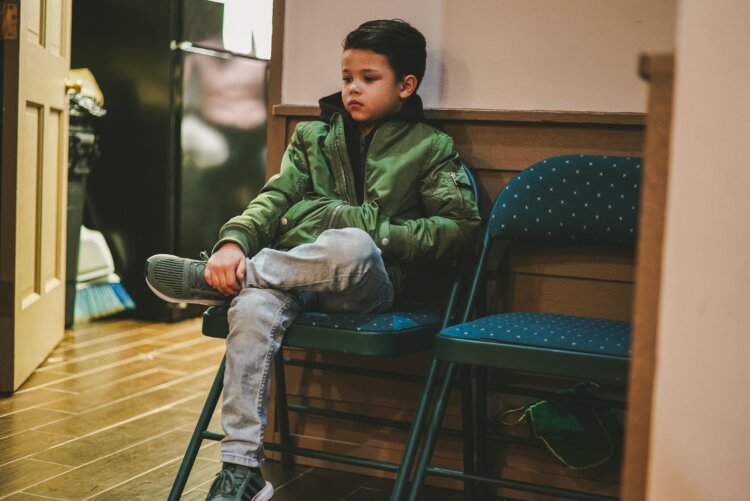
My husband and I came to the school meeting prepared with letters, health records, and a packet of outlined notes that I’d spent the better part of a week writing. I felt good walking in, but also a little nervous. We were asking for a 504 plan for our daughter who has ADHD and anxiety.
After explaining my child’s difficulties, I clutched my husband’s hand and took a deep breath. Eight pairs of eyes bore into me from around the table.
“Have you thought about therapy?” asked one of the staff.
“Yes,” I replied. “She’s been in therapy for a couple years now.”
“Really?” she said. “Huh.”
I never asked what the “huh” meant because a moment later the guidance counselor announced that they were giving us our 504. But I’ve heard it many more times since then. You see, three of my kids have anxiety disorders, and one has ADHD as well. The meaning of “huh” has become abundantly clear.
I tell the pediatrician that my child refuses to go to the bathroom and makes herself painfully constipated.
She needs to see a therapist.
“She does see a therapist.”
Huh.
I tell another mom that my child is afraid to be alone, even for a minute.
Oh, wow. You really should take her to therapy.
“I do take her to therapy.”
Really? Huh.
I tell my son’s teacher that he has massive, flailing fits every morning when it’s time to leave for school.
Then he needs to be in therapy.
“He is in therapy.”
Huh.
What most people seem to have trouble understanding is that therapy requires a lot of work. You often see advice column mavens recommending that letter writers try a number of techniques to solve their problems. “And if all else fails,” they say, “then find a good therapist.”
It’s as if therapy is a mystical panacea. A button you can push to cure any woe.
Here’s the reality. Therapy is not a “cure.” It’s a process. It takes time, patience, and work. The good news is, a lot of kids with mental health problems are able to make great progress with therapy. Mine have.
But the reason that therapy has worked for my kids is because it helped me to learn new parenting skills that I implement at home. Gradually, their symptoms eased up.
For example, my child who was throwing fits before school? He has irrational fears caused by anxiety. His therapist helped me learn to teach him to recognize the anxiety for what it is. I have a behavior modification chart for him at home designed to reward his good behaviors, and I’ve learned techniques to manage the tantrums. It’s taken some time, but the tantrums happen much less often.
So if your child has a mental health problem, then yes, you should see a therapist. That’s the first step. Once you have chosen a therapist and gotten onto her calendar, you can expect a few things:
- You, the therapist and your child (if he or she is old enough), will develop a treatment plan. The therapist will guide you, but you’ll have to contribute to your own goals and determine the steps to achieve them.
- Your therapist will work with your child in session, but you’ll work the most. You’ll have to learn new ways to parent, implement behavior modification techniques, and be aware of how your actions are affecting your child’s treatment almost all the time.
- Your anxiety level will go way down. All of this work might sound a little onerous, but it’s worth it. Multiple studies have shown that when parents learn behavior modification techniques to use at home, their kids’ mental health symptoms improve. With some coaching from a professional, these parents have reduced their kids’ aggressive and disruptive behavior at school and at home. What’s more, the parents felt more competent in their parenting and less stressed.
- Throughout the therapeutic process, you’ll have to monitor your child’s progress and re-evaluate the treatment plan. You’ll let the therapist know about behaviors you see at home, and she’ll help you figure out how to handle it. But all of the handling will be on you.
Those behavior modification and parenting techniques do actually work. I’ve seen it with my own kids. And I know it can work for you and your child, too. But it takes work and patience.
Entering therapy is not a cure. It’s not an ending. It is the right start toward helping you and your kids lead a more peaceful life.


Grok Nation Comment Policy
We welcome thoughtful, grokky comments—keep your negativity and spam to yourself. Please read our Comment Policy before commenting.